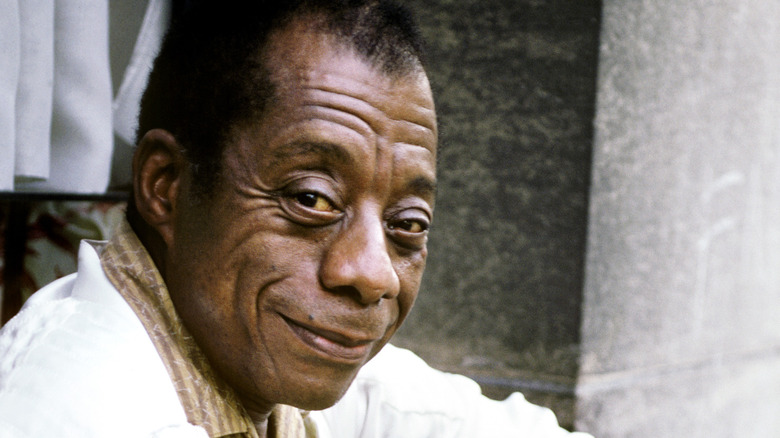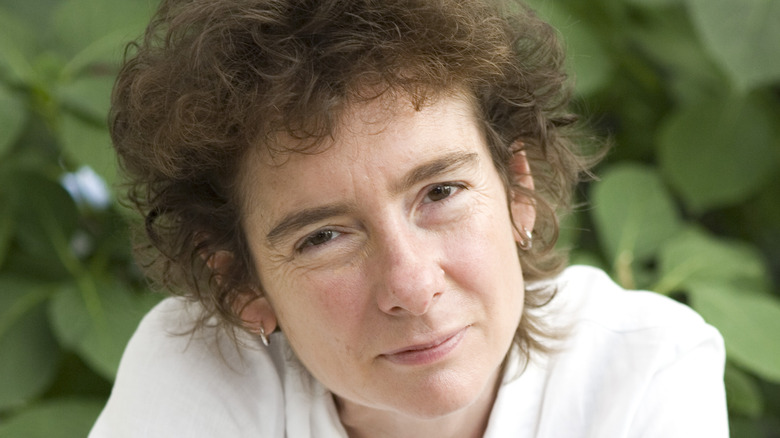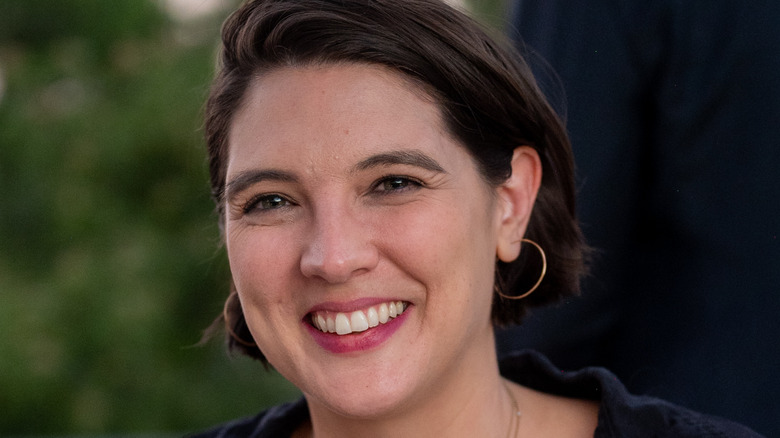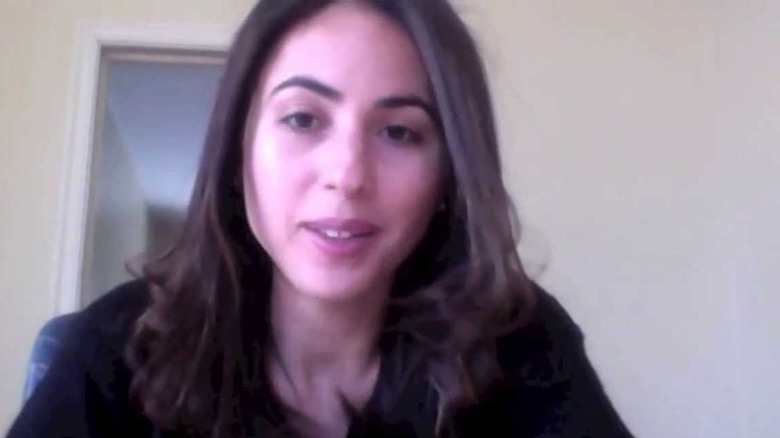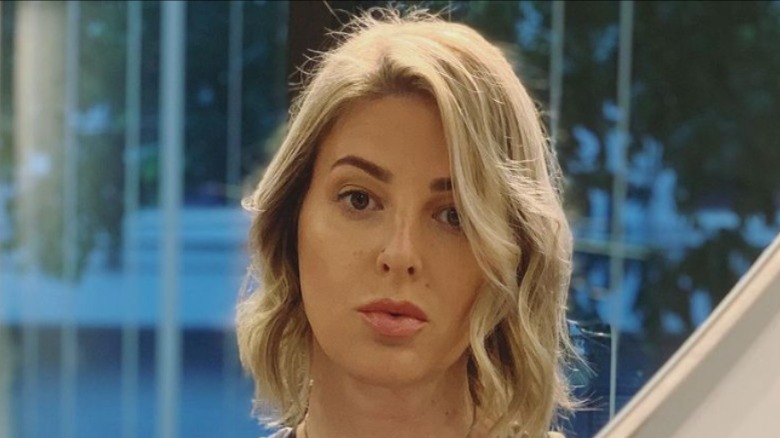The 5 Best Novels To Read During Pride Month
We may receive a commission on purchases made from links.
Nothing goes together like a sunny afternoon and a good book and for Pride month, we're sure we're not the only ones reaching for books about, and/or written by, members of the LGBTQ+ community.
Katherine Welander points out in the M-A Chronicle that while "the modern literary canon" is full of books that tackle tough issues, there is a distinct lack of LGBTQ+ characters and queer stories. Even stories that branch out beyond heterosexual relationships often fail to provide significant representation, for example in many of Salley Rooney's novels which writer Sadie Graham critiqued in a piece for Electric Literature as addressing "certain queer questions, theories, and antecedents" before it "largely carries forward in the most heterosexual manner possible." What we end up with is "straight characters in a queer world," like in Rooney's "Normal People," writes critic Claire Jarvis for Post45.
One of the best ways to show publishers people want to read LGBTQ+ stories — and a good way to be a better ally this Pride month – is to buy ones that have already been published. Below we've compiled a list of five books that need to go on your "to be read" list immediately. Ranging from stories about bisexuals to trans women building queer families with their exes, each book on our list features LGBTQ+ characters at its center.
Giovanni's Room by James Baldwin
No Pride month reading list would be complete without James Baldwin's "Giovanni's Room." Described by Book Riot as "possibly Baldwin's most acclaimed novel," "Giovanni's Room" follows David, an American expat living in 1950s Paris, who cheats on his girlfriend, Hella, with a man named Giovanni. Not only does "Giovanni's Room" explore heterosexual and bisexual relationships, but the book also tackles "masculinity, class, [and] identity," per Shondaland.
Per The New York Times Style Magazine, the book is semi-autobiographical. Baldwin lived in Paris when he was 24 (via The New Yorker), where he met Lucien Happersberger, with whom he had a long relationship. The characters in "Giovanni's Room," however, are white, while Baldwin was Black, something he explained in an interview was his way of keeping the focus not on race but on David's relationships with Giovanni and Hella.
Oranges Are Not the Only Fruit by Jeanette Winterson
Jeanette Winterson put much of herself into "Oranges Are Not the Only Fruit." The book, which has been adapted into a TV show, follows a young girl named Jeanette as she breaks away from her conservative Pentecostal upbringing after falling in love with a girl.
Another favorite of Pride month reading lists, "Oranges Are Not the Only Fruit" was described by The Feminist Library as a look at what happens when "heterosexuality must be the default" and the consequences of not fitting inside the norm through what Sarah Neilson describes in "The Los Angeles Review of Books" as the author's trademark "master[y] of sentence structure, wit, weirdness, and gut-punching narratives."
The Washington Post Book World calls the book a "striking, quirky, delicate, and intricate work" (via indie publisher Grove Atlantic) and it is a wonderful addition to any Pride month reading list.
The Seven Husbands of Evelyn Hugo by Taylor Jenkins Reid
If you're on BookTok, "The Seven Husbands of Evelyn Hugo" by Taylor Jenkins Reid is probably already on your radar. Set between present-day New York City and the golden days of Old Hollywood, this rising star in the bookish community has many secrets hiding inside its pages, the biggest of which is why Evelyn Hugo, a former Hollywood star, is going public with her life story after decades of living under the radar (via The Standard).
A best-selling historical fiction novel, "The Seven Husbands of Evelyn Hugo" is a "soaring, fast-paced and gripping performance" according to a review from Shelf Awareness (via Simon and Schuster). In it, Monique Grant, a little-known journalist, is granted access to Evelyn Hugo, a 79-year-old retired actress who is ready to reveal one of her biggest secrets: that she's bisexual. In the 1950s, 1960s, and even today, coming out in Hollywood comes with consequences, and through Evelyn, we see a first-hand account of what the weight of what's at stake can do to a person.
Evelyn Hugo, Sarah Neilson writes for "The Los Angeles Review of Books," is a "bisexual literary icon" who stars in a "really fun story."
You Exist Too Much by Zaina Arafat
In what will surely be a new staple on Pride month reading lists, "You Exist Too Much" follows a nameless 12-year-old Palestinian American. Per Parade, it "is a study in the rejection and reclamation of shame, as it applies to the experience of an isolated young woman within layers of geographic marginalization."
While the main character might not have a name, she does have other descriptors: "Arab. Bisexual. Migrant. Anorexic." (via NPR). These layers of "otherness," amplified by her mother's rejection of her sexuality, follow the main character across continents.
The Los Angeles Review of Books praises the book for "steering clear of the stereotypes that so often plague characters from a Middle Eastern background." Meanwhile, The Guardian wrote that the book's "first-person narrator has a distinctive voice and is a magnetic presence on the page" and that the novel captures "[t]he minutiae of failing relationships ... with precision." This tender, honest story of a self-proclaimed love addict lends a voice to those who feel like they spill out of the lines of themselves and are terrified of people seeing them — loving them — for who they really are.
Destransition, Baby by Torrey Peters
The final book on our Pride month reading list is "Detransition, Baby," written by Torrey Peters. Per the book's description on Amazon, Reese and her girlfriend Amy have "scraped together what previous generations of trans women could only dream of: a life of mundane, bourgeois comforts." That is, until Amy "detransitioned and became Ames, and everything fell apart." After Ames gets his girlfriend, Katrina, pregnant, he and Reese reunite as they consider the possibility of the three people raising the child together.
"Detransition, Baby," what's otherwise a traditional bourgeoisie comedy of errors, does what many queer novels don't: it "lets [trans people] be as dysfunctional as anyone else," writes The New Yorker. This is groundbreaking, notes the outlet, as the trans stories that get published are typically in the form of "a memoir that traffics in tidy arcs of self-empowerment, the sombre excavation of trauma, or both."
The fact that a major publisher is putting out a story about the messiness of LGBTQ+ families is huge, something that filmmaker Zackary Drucker told Rolling Stone is "paradigm shattering." According to Drucker, Peters was "able to communicate trans experience in a completely transcendent way" and for them, "Detransition, Baby" is "maybe one of the most-effective examples of a trans narrative being able to completely shatter people's notions of transness."

